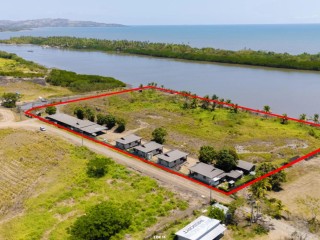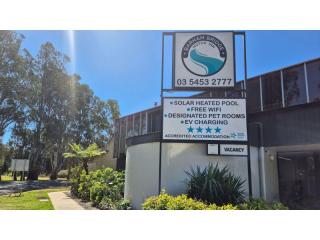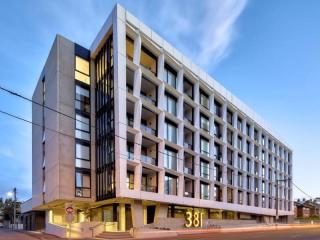Motels are no different to any other building in that they need continual repair, maintenance, updating and refurbishment. The nature of buildings and building materials is that whether they sit vacant or whether they have high traffic usage, they need ongoing attention. Everything needs attention at some point in time no matter what it is.
Ongoing maintenance and replacement or updating, is a fact of life and anything that presents well attracts attention. It creates a demand for itself. Why does a Spanish mackerel chase a shiny lure? Simply because it is nice and shiny. They are attracted to it and therefore want to get it. Motels that present well are no different, they attract attention and a demand from a potential guest. If it looks nice, we want to have it. Everyone wants to stay in as nice a motel as they can afford or are prepared to pay for.
Motels that operate under lease and fall into a state of disrepair often do so because there is doubt in the minds of the Lessee and the Lessor as to who is responsible for what. Neither party is then eager to incur the costs when they believe the other may be responsible under the terms of the lease. Often a lease document will either not be clear on who is responsible for exactly what, or more often the interpretation of the terms by either party may be ambiguous and lead to more questions than answers, as a result.
In many cases, where both parties act reasonably and ‘give and take’ is accepted by both, then many of these repair/replace/refurbish issues are often overcome. Where one or both parties are not willing to maintain their own asset, whether that is land and buildings or the business, each party is ultimately damaging themselves financially. It must be accepted by a Lessee and Lessor that wear and tear (fair or not) is going to occur over time and that a forty-year-old motel is going to need more ongoing repair, replacement, and refurbishment than a five-year-old motel.
Each night there are guests coming and going and properties do get damaged by occupation. Ageing motels do require more TLC than newer properties and this needs to be budgeted for and accepted by both Lessee and Lessor. Management of a refurbishment program needs to be considered carefully. A 40-year-old motel may never be able to compete with a brand-new high standard complex no matter how much money is spent. Millions of dollars do not need to be spent on an older complex to make it competitive. There are many low-cost methods in which an accommodation complex can be improved in order to retain guests and tariff rates. This can include soft furnishings, repaint, furniture, floor coverings, recoating benches opposed to replacing, tiles regrouted, etc.
Over recent years where new accommodation complexes have been built, it has resulted in the question at hand becoming more and more common. Many long-established motels then look to be upgraded through repairs, replacements, and refurbishments in order to remain competitive and improve the standard of the product that is being offered to the market.
Three questions can be considered regarding the “who is responsible” question:
- What is the purpose of completing the job? It may be an urgent repair issue, or it may be to lift the standard of the appearance/professionalism of the property, or it may be a major refurbishment matter.
- What needs to be done? Does one cracked tile need to be replaced or does the entire bathroom need to be retiled to bring the look of the bathroom into the modern era.
- Who is responsible for the cost? Under the terms of the lease who is responsible for the cost? Is it clearly defined within the lease or is it ambiguous and left open for interpretation.
If a Lessee or Lessor has any doubt as to who is responsible for a particular job to be completed under the terms of the lease, then they need to seek advice on the interpretation of the relevant clause within the lease. The opportunity to understand exactly who is responsible for what, is available when one enters a lease agreement, and this is the time to make sure one is aware of their repair, replacement, and refurbishment responsibilities.
If there is doubt over the interpretation of such a clause within a new motel lease, then perhaps the clause needs to be clarified from the outset. Although this is not often done, if it is a lease already in place, it can be mutually agreed to amend the lease to reflect a more definitive answer to that question of “who is responsible for what?” This may not be practical however, if the issue is already there!
Reinvestment back into a property (of any kind) is required by those with a vested interest. Communicating to work out a suitable plan to act reasonably and rectify in the best interests of the property and those involved, is always the best option.
Related Content


















